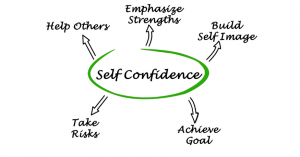
Do you want to develop as a leader and go from so-so to good to great? Leadership in 2022 is changing how companies grow beyond crunching numbers and using data. Great leaders embrace developing themselves and their teams in less than obvious ways.
7 Key Tips to Develop Your Leadership
Pick one or two areas to focus on with your coach, and enjoy your progress!
Developing emotional intelligence (EI) is crucial. With a record 4.5 million Americans quitting their jobs in November (Business in San Diego), workers want leaders that develop them! But first, you need to create a genuine interest in their dreams and a willingness to help them achieve their goals. The key is to use objective data from a qualified job fit assessment as a foundational guide. This is the fastest and easiest way to appreciate each and every team member for who they are, not whom you think they should be. Sharing the results will create a new level of EI for you and others.
Stop relying on your job title to win people over. Many customers, teams, and businesses are no longer impressed by a person’s job title! In addition, titles say nothing about your character. Instead, focus on showing others you are trustworthy, have integrity, and achieve the results you promised. Remember, focused-actions and results speak louder than words!
Be able to spot shifts and be proactive in making needed changes. Being able to spot shifts in the market, financials, and the company’s culture can help you get ahead of the curve. Conduct meetings by asking good business questions and listening. This is not the time to be a know-it-all. Compile the data to support changes needed and think from a win-win-win perspective (e.g., customer, company, team).
Only give advice when asked. There are way too many people giving unsolicited advice today. People have stopped listening even if you’re an influencer and trusted leader. Realize advice or feedback or coaching often falls on deaf ears. People will resent you for it, especially when you’re right. EXCEPTION: As a leader and boss, it’s your job to offer feedback and make it specific, on-target, and actionable, whether requested or not! For help, contact your coach now.
It’s what you say, not how you look. Looking professional is essential. But building credibility is much more critical. Your credibility is how you engage and call your teams into focused-action. This is where your choice of words matter. Develop clear messages and share a plan to resolve problems. Remember, work with your coach to ensure nonverbal gestures, tone of voice, facial and other body movements convey the same message as your words.
Learning begins with listening. Talking too much is the fastest way to derail your credibility, and ultimately your career. While this isn’t new, leaders often feel the urge to say or post their opinions and feelings on social media. Many call it being authentic until it gets them in trouble. Remember, as a leader, it’s no longer about you. You represent your customers, team members, and company. Listen first.
Self-talk impacts your results. Remember, completing your brag work on a weekly or monthly basis facilitates healthier self-talk and self-confidence.
©Jeannette Seibly, 2022 All Rights Reserved
 Jeannette Seibly is The Leadership Results Coach. She has guided the creation of three millionaires and countless 6-figure income professionals. During the past 29 years, her brags include being an award-winning international executive and family business management consultant, and keynote speaker. Recently, she was able to add another brag. She has been an Authorized PXT Select Partner with Wiley/Profiles International for 30 years, guiding companies to hire the right person the first time. Ask questions? Need help? Contact Jeannette for a confidential conversation.
Jeannette Seibly is The Leadership Results Coach. She has guided the creation of three millionaires and countless 6-figure income professionals. During the past 29 years, her brags include being an award-winning international executive and family business management consultant, and keynote speaker. Recently, she was able to add another brag. She has been an Authorized PXT Select Partner with Wiley/Profiles International for 30 years, guiding companies to hire the right person the first time. Ask questions? Need help? Contact Jeannette for a confidential conversation.
A Note from Jeannette about being a great leader in 2022. As a leader, your work is never done. That includes embracing and developing new skills needed to be a results-producer for your company, customers, and team. Do you have a question (or two) about how to get started or where to focus? If yes, contact me for a confidential conversation.
2022 is the year of the influencer! Become one by learning how. Grab your FREE copy of Eight Tips to Increase Your Ability to Influence.


 Jeannette Seibly is The Leadership Results Coach. She has guided the creation of three millionaires and countless 6-figure income professionals for almost 30 years. Her brags include being an award-winning international executive and family business management consultant, and keynote speaker. Recently, she was able to add another brag. She is now an international Amazon Bestselling author of, The Old Wooden Rocker. Have questions? Need a speaker or facilitator?
Jeannette Seibly is The Leadership Results Coach. She has guided the creation of three millionaires and countless 6-figure income professionals for almost 30 years. Her brags include being an award-winning international executive and family business management consultant, and keynote speaker. Recently, she was able to add another brag. She is now an international Amazon Bestselling author of, The Old Wooden Rocker. Have questions? Need a speaker or facilitator? 






